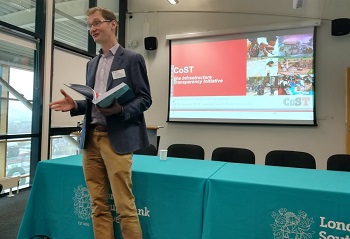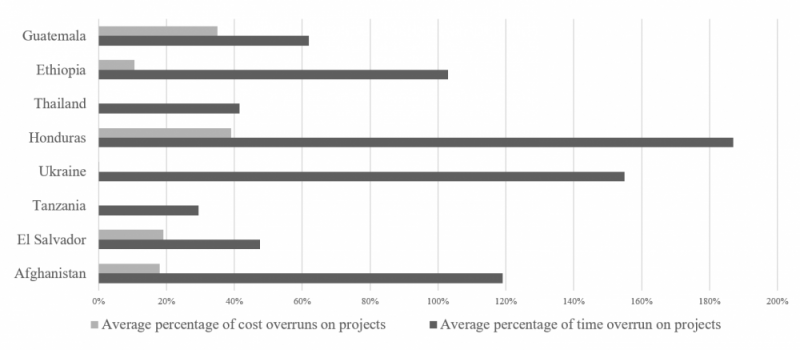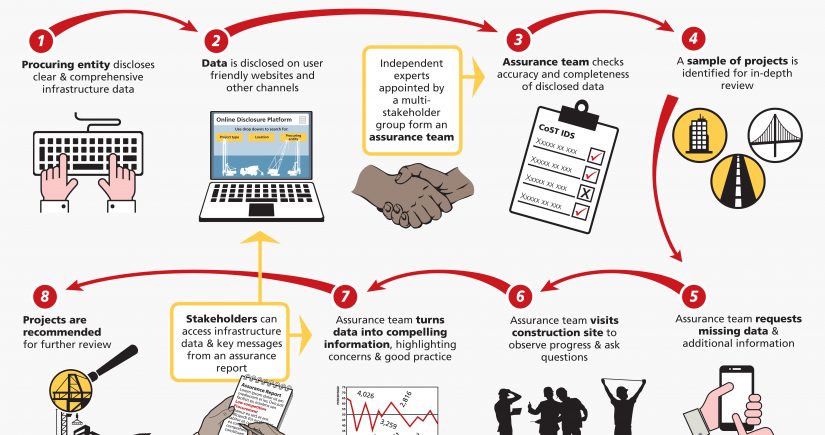From 22-23 November we joined construction professionals and practitioners from across industry, civil society and academia at London South Bank University’s conference, Professionalism and Ethics in Construction, an event focussed on sharing methods of working and research to advance ethical and professional practices and improve the industry’s performance.
 For the conference, John Hawkins, Head of Programmes at CoST developed a paper on the impact of the CoST assurance process which was awarded best paper by the conference organisers. The paper explains how assurance is a key tool in promoting ethical and professional practices in infrastructure delivery and outlining how it can be a catalyst for project improvements and broader sector reform.
For the conference, John Hawkins, Head of Programmes at CoST developed a paper on the impact of the CoST assurance process which was awarded best paper by the conference organisers. The paper explains how assurance is a key tool in promoting ethical and professional practices in infrastructure delivery and outlining how it can be a catalyst for project improvements and broader sector reform.
Presenting his paper to those in attendance, Mr Hawkins outlined concrete examples of the CoST Assurance impact at both national and local levels. For example, the data included in CoST Ukraine’s assurance process was one third of Ukraine’s national investment in roads and led to the President of Ukraine commending the process. CoST Uganda used assurance report findings at a community meeting in Wakiso District Council, highlighting issues concerning a major road construction, following this, the District brought into the process and began a journey to build greater trust with local citizens and to put in place measures to rectify the issues raised, such as improving the safety of the road construction.
More specifically, the paper outlines how CoST Assurance differs to an audit process – CoST Assurance looks at the accuracy and completeness of data disclosed on projects and then highlights key issues of concern and areas of good practice – a process of turning data into compelling information. It also focusses on the bigger picture by engaging procuring entities to address shortcomings and working with civil society and the media to put key issues into the public domain. Finally, it can occur at any stage of an infrastructure project, and thus, contribute to ongoing monitoring functions.
The paper looks at initial data from 11 reports which will have been published by the end of 2018. Collectively, these include data from nine countries spanning four continents covering 127 infrastructure projects – a 100% increase on the amount of data CoST helped to publish in 2017.
 The paper outlines initial trends from an analysis of data from these assurance reports. One particularly common theme is that of percentage and cost increases on projects which could be linked to poor project preparation. For example, on 86 projects the length of the construction contract increased by an average of 90% and the cost increased by an average of 23%.
The paper outlines initial trends from an analysis of data from these assurance reports. One particularly common theme is that of percentage and cost increases on projects which could be linked to poor project preparation. For example, on 86 projects the length of the construction contract increased by an average of 90% and the cost increased by an average of 23%.
Taking a holistic approach in identifying common trends in our assurance process is particularly valuable to inform the process going forward. Using our analysis on project preparation, we can encourage CoST multi-stakeholder groups to include projects in the process prior to construction, helping to mitigate the risk of time and cost increases going forward. Over the coming months, we will be drawing together data from our assurance reports from the last three years which includes a data set of about 200 infrastructure projects. We will look at the key trends in this data to further our assurance process.
